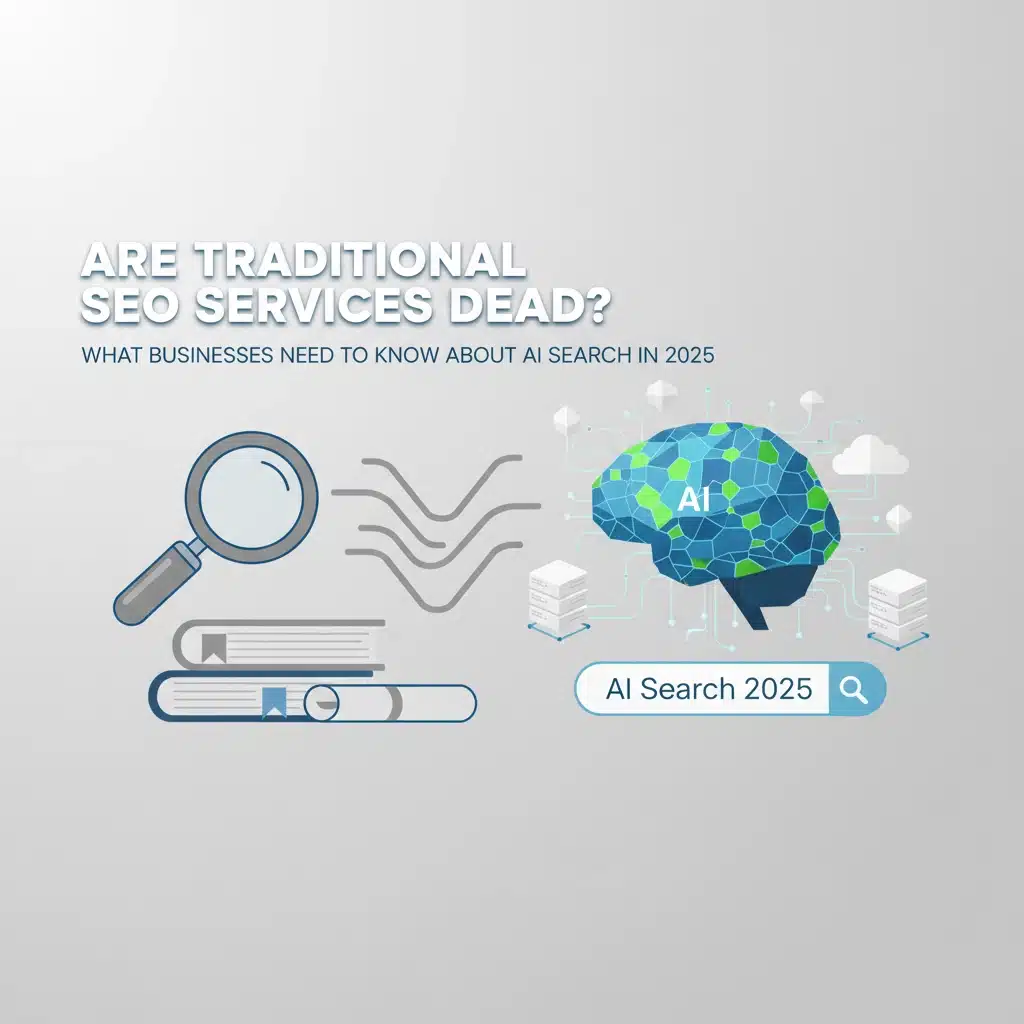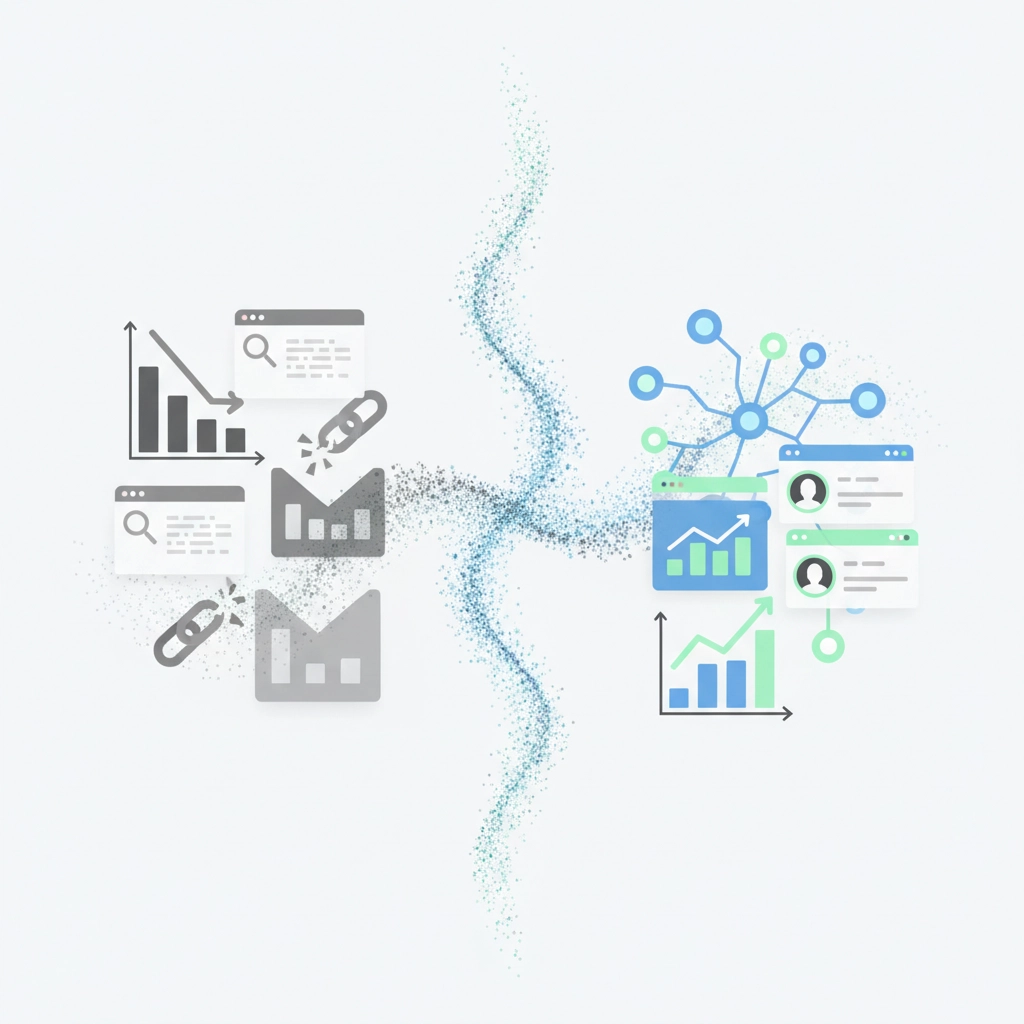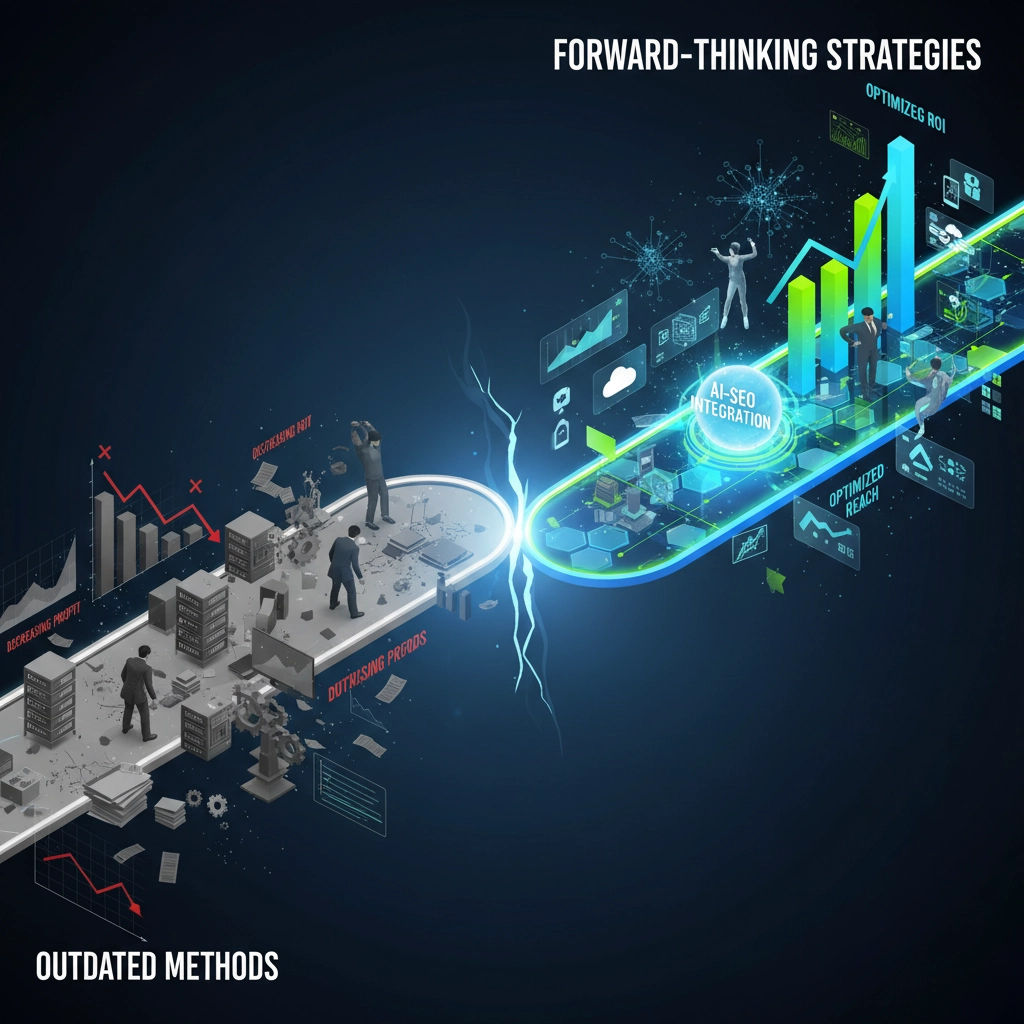The death of SEO has been greatly exaggerated. While 34% of businesses report decreased click-through rates from Google's AI Overviews, and zero-click searches now account for nearly 65% of all queries, traditional SEO services aren't dying: they're undergoing the most fundamental transformation in the industry's 25-year history.
Here's what's actually happening: SEO is evolving, not expiring. The businesses that understand this distinction will dominate 2025, while those clinging to outdated tactics or abandoning SEO altogether will become invisible online.
The Great SEO Death Myth of 2025
Why Everyone Thinks SEO Is Dead
The rumors of SEO's death aren't unfounded: they're based on very real, seismic shifts happening right now:
AI Overviews are crushing traditional click-through rates. Google's AI-powered search results now provide comprehensive answers directly on the search page, reducing site visits by up to 35%. Users find what they need without ever clicking through to your website.
Voice search and conversational AI have exploded. With over 4.2 billion voice assistants in use worldwide, people increasingly ask questions rather than type keywords. ChatGPT, Claude, and other AI platforms now handle billions of search queries that previously went to Google.
The job market reflects this uncertainty. Traditional SEO roles are disappearing while AI-integrated positions multiply. Many agencies have laid off content teams, assuming AI can replace human expertise entirely.
But here's the critical insight most businesses are missing: these changes signal evolution, not extinction.
The Hard Truth: Google Still Rules Search
Despite the AI revolution, the fundamental reality hasn't changed: Google maintains 91.9% of the global search market share, processing over 8.5 billion searches daily. Even more telling: 53.3% of all website traffic still comes from organic search results.
AI search engines depend on traditional SEO. When ChatGPT provides product recommendations or answers complex questions, it pulls information from websites that rank well in traditional search engines. Poor SEO means AI systems won't find your content to reference or recommend.
The businesses panicking about SEO's death are making a critical strategic error. They're abandoning the very foundation that feeds AI systems the information users need.
What's Actually Changing: The New SEO Reality
Traditional keyword stuffing is dead. AI can detect thin, manipulative content instantly. Google's algorithms, powered by machine learning, now prioritize authentic expertise and genuine user value over keyword density.
Technical excellence has become non-negotiable. Core Web Vitals, mobile optimization, and site speed directly impact how AI systems crawl and understand your content. Pages with proper schema markup rank an average of 4 positions higher than those without it.
Content depth matters more than frequency. AI Overviews pull from comprehensive, authoritative sources. Surface-level blog posts no longer compete: you need content that demonstrates genuine expertise and covers topics thoroughly.
The Integration Advantage: AI + SEO = Dominance
Smart businesses aren't choosing between traditional SEO and AI: they're combining both for unprecedented results.
AI enhances traditional SEO workflows:
- Keyword research happens in minutes instead of hours
- Content optimization suggestions are data-driven and precise
- Technical audits identify issues human analysis might miss
- Competitor analysis reveals gaps and opportunities instantly
Human expertise remains irreplaceable for:
- Strategic decision-making based on business context
- Building authentic relationships and earning genuine backlinks
- Creating content with real-world experience and expertise
- Understanding nuanced customer needs AI can't detect
The Expert SEO Consulting approach combines AI-powered analysis with human strategic thinking: giving clients the best of both worlds.
What Businesses Must Do Right Now
1. Optimize for AI Overviews and Featured Snippets
AI Overviews pull from the same sources that historically earned featured snippets. Structure your content to answer specific questions clearly and comprehensively. Use headers, bullet points, and logical information hierarchy.
2. Focus on E-A-T Excellence
Experience, Expertise, Authoritativeness, and Trustworthiness have become the primary ranking factors. Demonstrate real expertise through detailed author bios, case studies, and content that only someone with genuine experience could create.
3. Implement Advanced Technical SEO
Schema markup is no longer optional: it's how AI systems understand your content. Structured data helps AI Overviews select your information over competitors'. Core Web Vitals directly impact both traditional rankings and AI content selection.
4. Create "AI-Worthy" Content
AI systems favor content that thoroughly addresses user intent. Instead of targeting individual keywords, build comprehensive topic clusters that cover subjects entirely. Think encyclopedia entries, not blog posts.
5. Diversify Your Search Presence
Optimize for multiple platforms where your audience searches: Google, YouTube, ChatGPT, social media, and industry-specific AI tools. Each platform requires different optimization approaches.
The Strategic Shift: From Tactics to Systems
The old SEO model: Create content targeting specific keywords, build links, hope for rankings.
The new SEO reality: Build comprehensive topic authority, optimize for AI understanding, create content humans and machines both value.
This shift requires sophisticated strategy and execution. Most businesses lack the resources to navigate this complexity internally, making professional SEO consulting more valuable than ever.
Warning Signs Your SEO Strategy Is Stuck in 2023
You're still focusing primarily on keyword density instead of topic comprehensiveness and user intent satisfaction.
Your content creation process doesn't incorporate AI analysis of search intent, competitor gaps, and optimization opportunities.
You're not tracking AI Overview appearances or optimizing specifically for voice search and conversational queries.
Your technical SEO hasn't been updated for AI crawling patterns, structured data requirements, and Core Web Vitals.
The Competitive Reality
While competitors debate whether SEO is dead, forward-thinking businesses are claiming market share. Companies that adapt their SEO strategies for the AI era are seeing 40% higher organic visibility than those using outdated approaches.
The window for easy adaptation is closing rapidly. As more businesses understand the AI-SEO integration opportunity, competition for AI Overview placements and voice search results will intensify dramatically.
Your Next Steps
The businesses that will dominate 2025 are those that act now. Traditional SEO isn't dead: it's more sophisticated, more strategic, and more essential than ever. But it requires expertise that combines traditional fundamentals with AI-era innovations.
Don't let competitors gain an insurmountable advantage while you debate whether SEO matters. The question isn't whether traditional SEO services are dead: it's whether you'll adapt quickly enough to stay competitive.
Ready to future-proof your search presence? Book a consultation to discover how your business can leverage both traditional SEO fundamentals and AI-powered opportunities for maximum online visibility.
The SEO evolution is happening with or without you. Make sure you're on the winning side.











